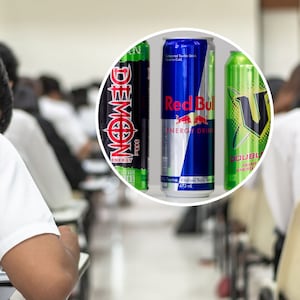Health
UK Proposes Ban on High-Caffeine Energy Drinks for Children

The British Government announced plans to prohibit the sale of high-caffeine energy drinks to children under the age of 16. This initiative aligns the United Kingdom with several other European countries taking similar actions to address health concerns. Officials believe that this measure could help combat obesity, lower anxiety levels, and enhance concentration in the classroom.
The proposed ban, detailed by the Department of Health, sets a limit of 150 milligrams of caffeine per litre for energy drinks sold to minors. The announcement marks the beginning of a formal 12-week consultation period involving discussions with industry leaders and health experts. The government expects that the measure will receive parliamentary approval, which is considered likely and may not require a formal vote.
If implemented, this regulation would render it illegal to sell energy drinks exceeding the caffeine threshold to anyone younger than 16. The move is part of a broader effort to promote public health and ensure that children are not exposed to the potential negative effects of excessive caffeine consumption.
In recent years, high-caffeine energy drinks have gained popularity among young people, raising concerns among health professionals about their impact on physical and mental well-being. Research suggests that excessive caffeine intake can lead to increased heart rates, anxiety, and sleep disturbances, particularly in children and adolescents.
The UK government is responding to these health concerns by taking proactive steps to safeguard young individuals. This proposed ban reflects a growing awareness of the need to regulate products that may pose health risks to vulnerable populations. By restricting access to high-caffeine energy drinks, the government aims to create a healthier environment for children.
Public response to the proposal has been mixed, with some parents and health advocates expressing support for the initiative. They argue that reducing children’s access to these drinks could have positive effects on their overall health and well-being. Others, however, caution against potential unintended consequences, such as the possibility of children seeking out alternative, potentially more harmful substances.
As part of the consultation process, stakeholders will have the opportunity to voice their opinions and provide feedback on the proposed ban. This engagement is essential for shaping effective policies that balance public health objectives with the interests of industry and consumers.
The UK’s approach follows similar initiatives in other European countries, where measures have been introduced to restrict the sale of high-caffeine beverages to minors. These coordinated efforts highlight a growing recognition of the need for regulatory action to protect young people from the potential harms associated with excessive caffeine consumption.
In summary, the British Government’s proposal to ban the sale of high-caffeine energy drinks to children under 16 is a significant step toward promoting better health outcomes for young people. As the consultation period unfolds, the focus will be on gathering insights and ensuring that any new regulations effectively address the health risks associated with these products.
-

 World4 months ago
World4 months agoTest Your Knowledge: Take the Herald’s Afternoon Quiz Today
-

 Sports5 months ago
Sports5 months agoPM Faces Backlash from Fans During Netball Trophy Ceremony
-

 Lifestyle5 months ago
Lifestyle5 months agoDunedin Designers Win Top Award at Hokonui Fashion Event
-

 Entertainment5 months ago
Entertainment5 months agoExperience the Excitement of ‘Chief of War’ in Oʻahu
-

 Sports5 months ago
Sports5 months agoLiam Lawson Launches New Era for Racing Bulls with Strong Start
-

 Top Stories2 weeks ago
Top Stories2 weeks agoTongan Star Eli Katoa Shares Recovery Update After Surgery
-

 World5 months ago
World5 months agoCoalition Forms to Preserve Māori Wards in Hawke’s Bay
-

 Health5 months ago
Health5 months agoWalking Faster Offers Major Health Benefits for Older Adults
-

 Lifestyle5 months ago
Lifestyle5 months agoDisney Fan Reveals Dress Code Tips for Park Visitors
-

 Politics5 months ago
Politics5 months agoScots Rally with Humor and Music to Protest Trump’s Visit
-

 Top Stories5 months ago
Top Stories5 months agoUK and India Finalize Trade Deal to Boost Economic Ties
-

 Health2 months ago
Health2 months agoRadio Host Jay-Jay Feeney’s Partner Secures Visa to Stay in NZ









